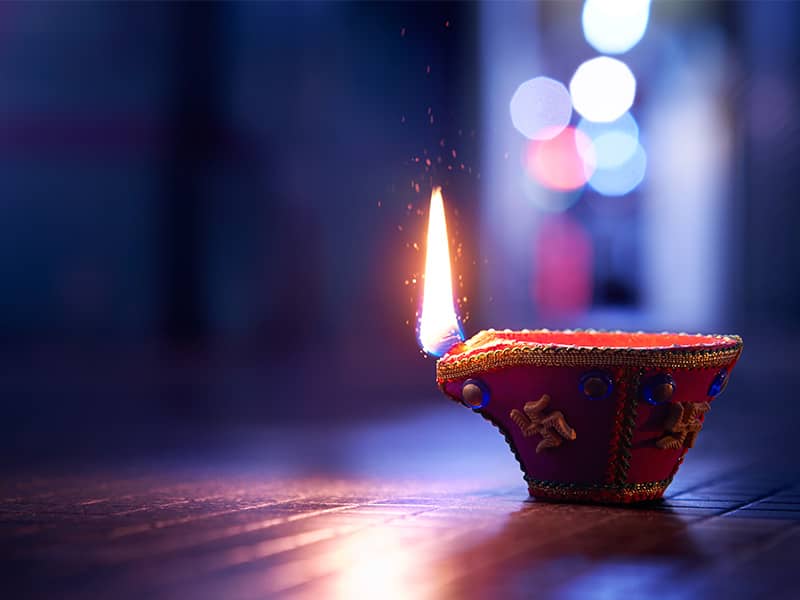As a teenager, I had an unwavering weekend routine. Every Saturday, I would ride my bike to Ayesha's home. We would spend the morning playing chess after which her Mom would serve us a delicious lunch. Being vegetarian, I stayed away from the succulent-looking meat kebabs. But I wolfed down the tasty biriyani, rich and aromatic with spices like cumin, fennel seeds, bay leaves, and cinnamon.
If all this sounds very normal and tame, it wasn't. You see, even though Ayesha and I came from educated, middle-class families, even though India in the `70s was a secular democracy, there was still a divide between Muslims and Hindus.
Hindus are the majority in India, but India has the third-largest Muslim population in the world. There are nearly as many Muslims in India as there are in neighboring Pakistan. India has had two Muslim presidents, Fakrudin Ali Ahmed and Zakir Hussain. Its first woman chief justice, Fatima Biwi, was a Muslim. Most of the top movie stars in India's Bollywood are Muslim men with a common last name, Khan, even though they are not related (Shah Rukh Khan, Salman Khan, and Aamir Khan are three of the top stars). India's most famous artist, M.F. Hussein, is Muslim, and its top singers, Mohammed Rafi and Talat Mehmood, made their name (paradoxically) singing Hindu bhajans. Muslims hold a prominent and cherished role in India's public life. In private life, however, Muslims and Hindus have an uneasy alliance, sometimes friends, sometimes enemies.
My parents are fairly typical of the Hindu majority. They never discouraged us from having Muslim friends; they bought groceries only from Muslim merchants, whom they considered more honest than Hindu ones. Our family physician was a Muslim lady, as was my father's closest colleague.
Yet there were certain things that were simply not done in our household.
Ayesha heard similar things in her house. Hindus venerated cows. Why, they even washed their courtyards with cow dung. Maybe their food too was sprinkled with cow-manure or something. The unspoken message for both of us was, "Don't eat at each others' homes," which was why I didn't tell my parents about gorging myself on biriyani at Ayesha's house.
My mother found out, of course. Maybe it was the smell of garlic--not a popular ingredient in my mother's cooking--or maybe it was my guilty manner. She confronted me and I confessed. Yes, I had been regularly eating biriyani at Ayesha's house.
Deeply disturbed, my mother decided that she had no option but to invite herself to tea at Ayesha's and personally investigate her Muslim home. Did Ayesha have handsome brothers whom I could run off with? Were they fanatical Muslims with underworld connections, or "good" Muslims like Sakina, our doctor, or Mohammed, our grocery man?
So one afternoon, my mother and I sat across from Ayesha and her mom, gingerly drinking tea and making polite conversation. We had to invite them back, of course, and they came. So it went for several years.
My mom didn't become close friends with Ayesha's mom, as I had secretly hoped. But when Ayesha's parents invited us to her wedding, my parents attended, and partook of the wedding feast--at least the vegetarian portion of it.
A long time has passed since those early tentative contacts between our families. Ayesha and I are still friends, even though thousands of miles separate us. Whenever there is tension between Hindus and Muslims in my old city, I check with Ayesha about whether she thinks rioting will break out. When in 1992 Hindus destroyed a famous mosque, the Babri masjid, Hindu-Muslim riots broke out all over India. Ayesha was my barometer for how crazy the rioting would get.
Sure, I have prejudices--it is hard to grow up Hindu in India and escape them. For instance, I love Ayesha, but I am wary of her brothers who, to my eyes, sport a certain Muslim machismo. However, living in New York, I chose a Pakistani pediatrician over an American because I felt that she would understand South Asian culture and my food habits better. I am thrilled that my daughter's closest friend in school is a young Pakistani girl, but were my daughter to walk in with a Muslim boyfriend, I am not sure how I would react.
Ayesha too has her prejudices about Hindus. But, to some extent, we have been able to set them aside and bridge the religious divide. The present conflict doesn't bode well for Hindu-Muslim friendships in the future.
Hindu and Muslim leaders in the region frequently call for peace, but are almost always misunderstood or dismissed as having political agendas. Political reconciliation between India's predominantly Hindu government and Pakistan's exclusively Muslim government seems unlikely in the current escalating environment.
I would like to think that Hindus and Muslims throughout India could take the first step in overcoming their prejudices--much as Ayesha's mom and my mother did--and form relationships, if not become friends. I just wish I felt more optimistic that they would.
At this point, the only hope for Hindu-Muslim reconciliation has to be from the ground up, from friendships struck by individual Hindus and Muslims, and from grassroots efforts by small groups. And it may take more time than we have.

